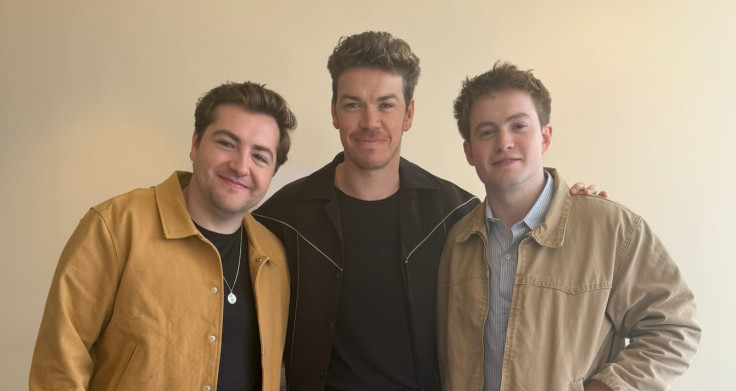
There's no soundtrack swelling in 'Warfare,' the new Alex Garland film. No emotional violin cues telling you when to cry, and definitely no slow-mo hero shots. In fact, the only music in the whole film is a blink-and-you-miss-it scene featuring a home video. That was very much the point.
Actors Michael Gandolfini, Will Poulter and Kit Connor visited Miami to exhibit the moviem after they talked to me about the experience of making it in London and seeing it with an audience for the second time. Something impactful about 'Warfare' is the lack of a score. It was a powerful choice and they loved it.
"We didn't want to guide people's emotions," Poulter told me. "You're in the middle of it, and the silence—that's the reality." Welcome to 'Warfare,', the latest film co-directed by Navy SEAL-turned-filmmaker Ray Mendoza and writer-director Garland. It's a raw, stripped-down look at war, but not the kind you've seen before. No glossy hero arcs. Just dirt, trauma, brotherhood, and a mission gone wrong.
The cast is stacked with what the internet lovingly calls "the favorite boyfriends of the moment":Poulter (Guardians of the Galaxy Vol. 3), Gandolfini (The Many Saints of Newark), Kit Connor (Heartstopper), and D'Pharaoh Woon-A-Tai (Reservation Dogs), among others. But 'Warfare' isn't about star power—it's about realism. And part of that realism came from casting actors who actually looked like young soldiers. "So many war movies cast 30-year-olds to play guys who are barely 20," Poulter said. "We wanted to reflect the truth of who was really there."
Shot inside a warehouse in North London, the film immerses you in the chaos of war with almost no dialogue, no score, and no escape. But off-screen? That was a different story. "We were all staying in the same hotel, and there was a lot of singing," said Connor with a grin. "It sounds cheesy, but that's where the brotherhood started." Their behind-the-scenes playlist? A mix of AC/DC, Beastie Boys, early 2000s rap, and—surprisingly—Zach Bryan sing-alongs.
"We'd harmonize in the hallways," Gandolfini added. "It was a way to shake off the heaviness."
And music, ironically, becomes a powerful tool in the film's silence. That one music video scene is your only sonic break—a flash of normal life, a reminder of who these guys were before the uniforms. "Music connects us to them as people," Connor explained. "And the lack of it during combat? That's when they're soldiers. That's when they're cut off."
Mendoza, who based much of the film on his own combat experience, didn't want to make another shoot-'em-up blockbuster. Warfare is less about politics and more about consequences—what it feels like to carry trauma in your body, your relationships, your silence. "He wanted something veterans could show their families and say, 'This. This is what it felt like,'" Gandolfini said.
And that's the thing—Warfare isn't just telling a story. It's changing how war stories are told. Gone are the days of rousing scores and cookie-cutter arcs. This is the war film of the TikTok era: raw, real, intimate. The kind that doesn't need explosions to feel explosive.
By the end of our conversation, it was clear: Warfare is more than a film. It's a reset button. It dares audiences to watch without being told how to feel—and in doing so, it might just reshape the genre entirely.
© 2025 Latin Times. All rights reserved. Do not reproduce without permission.







